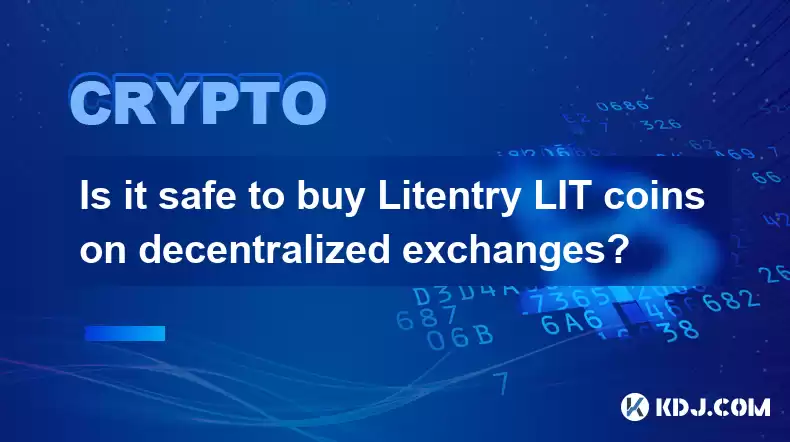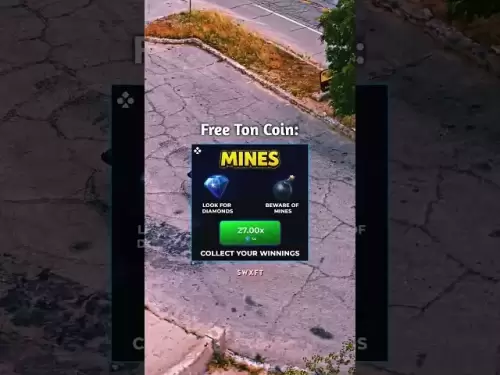-
 Bitcoin
Bitcoin $118000
-1.29% -
 Ethereum
Ethereum $3758
-3.52% -
 XRP
XRP $3.113
-5.04% -
 Tether USDt
Tether USDt $0.9998
-0.05% -
 BNB
BNB $818.5
-3.23% -
 Solana
Solana $181.9
-5.10% -
 USDC
USDC $0.9997
-0.04% -
 Dogecoin
Dogecoin $0.2239
-8.33% -
 TRON
TRON $0.3233
0.95% -
 Cardano
Cardano $0.7842
-6.81% -
 Hyperliquid
Hyperliquid $43.35
-2.12% -
 Sui
Sui $3.894
-9.97% -
 Stellar
Stellar $0.4176
-6.99% -
 Chainlink
Chainlink $17.97
-6.68% -
 Bitcoin Cash
Bitcoin Cash $576.7
-2.30% -
 Hedera
Hedera $0.2671
-7.23% -
 Avalanche
Avalanche $24.64
-6.12% -
 UNUS SED LEO
UNUS SED LEO $8.972
0.08% -
 Litecoin
Litecoin $108.1
-6.55% -
 Toncoin
Toncoin $3.198
-5.94% -
 Shiba Inu
Shiba Inu $0.00001325
-6.80% -
 Ethena USDe
Ethena USDe $1.001
-0.04% -
 Uniswap
Uniswap $10.27
-7.02% -
 Polkadot
Polkadot $3.935
-7.49% -
 Monero
Monero $317.7
-2.24% -
 Dai
Dai $0.9999
0.00% -
 Bitget Token
Bitget Token $4.550
-3.85% -
 Pepe
Pepe $0.00001179
-8.68% -
 Cronos
Cronos $0.1418
-2.34% -
 Aave
Aave $286.2
-6.49%
Is it safe to buy Litentry LIT coins on decentralized exchanges?
Purchasing Litentry LIT coins on DEXs requires careful assessment of security mechanisms, reputable listings, liquidity, user reviews, and community sentiment to ensure a secure trading experience.
Dec 28, 2024 at 11:47 pm

Key Points:
- Understanding the Security Mechanisms of Decentralized Exchanges (DEXs)
- Assessing the Reputable Litentry LIT Coin Listings and DEX Options
- Considering the Liquidity and Trading Volume for LIT Coins on DEXs
- Evaluating User Reviews and Community Sentiment around DEXs with LIT Pairings
- Implementing Best Practices for Secure LIT Coin Transactions on DEXs
Is it Safe to Buy Litentry LIT Coins on Decentralized Exchanges?
The safety of purchasing Litentry LIT coins on decentralized exchanges (DEXs) depends on various factors that require careful consideration. DEXs, unlike centralized exchanges, operate on a peer-to-peer (P2P) basis, providing greater autonomy and control to users. However, this decentralized nature also introduces potential security risks.
Understanding the Security Mechanisms of DEXs
- Smart Contract Security: DEXs rely on smart contracts to automate transactions and enforce trading rules. The security of smart contracts is crucial, as vulnerabilities can potentially lead to exploits and fund loss. Users should research the security audits performed on the underlying smart contracts and consider DEXs with a proven track record of reliability.
- Liquidity Pools: DEXs facilitate trading through liquidity pools, where users contribute their assets to facilitate trading. The size and depth of these pools impact transaction speed and price stability. Users should choose DEXs with sufficient liquidity for the LIT pairs they are interested in, as low liquidity can lead to slippage and higher transaction costs.
Assessing the Reputable Litentry LIT Coin Listings and DEX Options
- DEX Listings: Not all DEXs list LIT coins. Users should verify that the DEX they choose offers LIT pairings. Reputable and well-established DEXs with a significant user base and token listings provide a higher level of trust and reliability.
- DEX Options: There are several DEX platforms available, each with its strengths and weaknesses. Some of the popular DEXs include Uniswap, PancakeSwap, and SushiSwap. Users should research and compare the features, security measures, and user experience offered by each platform before selecting the one that best meets their needs.
Considering the Liquidity and Trading Volume for LIT Coins on DEXs
- Liquidity: The liquidity of a LIT pair on a DEX is crucial for smooth and efficient trading. Users should consider the total value locked (TVL) in the corresponding liquidity pool. A higher TVL indicates a larger pool of assets available for trading, reducing slippage and improving price stability.
- Trading Volume: The trading volume of a LIT pair on a DEX reflects the market activity for the asset. A higher trading volume suggests a liquid market with a high number of ongoing transactions. This can provide users with faster execution of trades and improved price discovery.
Evaluating User Reviews and Community Sentiment around DEXs with LIT Pairings
- User Reviews: Reading online reviews and user feedback can provide insights into the reliability and security of DEXs. Users should look for DEXs with positive user experiences and a proven track record of handling sensitive transactions.
- Community Sentiment: Engaging with the DEX community on social media forums or online chats can provide valuable information about the platform's reputation and user satisfaction. A positive community sentiment can indicate a high level of trust and support for the DEX.
FAQs
Q: How do I identify a reputable DEX for LIT coin purchases?
A: Assess the DEX's security measures, smart contract audits, liquidity pools, and user reviews. Consider well-established platforms with strong security protocols and a proven track record.
Q: What are the key factors to consider when buying LIT coins on DEXs?
A: Liquidity, trading volume, user reviews, community sentiment, and the overall reputation of the DEX platform are crucial factors to evaluate.
Q: Is it advisable to store LIT coins on a DEX after purchase?
A: DEXs primarily facilitate trading and are not designed for long-term storage. Users are recommended to transfer their LIT coins to a secure hardware wallet for optimal security and control.
Q: Are there any risks associated with buying LIT coins on DEXs?
A: Potential risks include smart contract vulnerabilities, liquidity issues, market volatility, and cybersecurity threats. Users should take appropriate precautions to mitigate these risks.
Q: How can I ensure the security of my LIT coin transactions on DEXs?
A: Use strong passwords, enable two-factor authentication (2FA), double-check transaction details, and avoid connecting to DEXs from untrusted networks. Consider using hardware wallets for enhanced security.
Disclaimer:info@kdj.com
The information provided is not trading advice. kdj.com does not assume any responsibility for any investments made based on the information provided in this article. Cryptocurrencies are highly volatile and it is highly recommended that you invest with caution after thorough research!
If you believe that the content used on this website infringes your copyright, please contact us immediately (info@kdj.com) and we will delete it promptly.
- XRP & Shiba Inu: The Race for Faster Growth – Which Will Win?
- 2025-07-29 16:30:12
- Bitcoin Swift (BTC3): AI-Powered Blockchain Presale Heats Up!
- 2025-07-29 17:10:12
- EDU Token, Binance, and Liquidity Concerns: What's the Deal?
- 2025-07-29 16:50:12
- Bitcoin Price Bulls Eye $120K: Will the Rally Continue?
- 2025-07-29 17:10:12
- Upbit, INJ, and the Injective Upgrade: What's the Hype?
- 2025-07-29 16:50:12
- ARK Invest, BitMine, and Coinbase: A Wild Ride in the Crypto World
- 2025-07-29 16:30:12
Related knowledge

What is Chainlink (LINK)?
Jul 22,2025 at 02:14am
Understanding Chainlink (LINK): The Decentralized Oracle NetworkChainlink is a decentralized oracle network designed to bridge the gap between blockch...

What is Avalanche (AVAX)?
Jul 22,2025 at 08:35am
What is Avalanche (AVAX)?Avalanche (AVAX) is a decentralized, open-source blockchain platform designed to support high-performance decentralized appli...

What is Polkadot (DOT)?
Jul 19,2025 at 06:35pm
Understanding the Basics of Polkadot (DOT)Polkadot (DOT) is a multi-chain network protocol designed to enable different blockchains to transfer messag...

What is Litecoin (LTC)?
Jul 23,2025 at 11:35am
Overview of Litecoin (LTC)Litecoin (LTC) is a peer-to-peer cryptocurrency that was created in 2011 by Charlie Lee, a former Google engineer. It is oft...

What is Monero (XMR)?
Jul 21,2025 at 10:07am
What is Monero (XMR)?Monero (XMR) is a decentralized cryptocurrency designed to provide enhanced privacy and anonymity for its users. Unlike Bitcoin a...

How to add indicators to Ethereum chart on TradingView?
Jul 19,2025 at 07:15am
What Is an Ethereum Chart on TradingView?The Ethereum chart on TradingView is a visual representation of the price movement of Ethereum (ETH) over a s...

What is Chainlink (LINK)?
Jul 22,2025 at 02:14am
Understanding Chainlink (LINK): The Decentralized Oracle NetworkChainlink is a decentralized oracle network designed to bridge the gap between blockch...

What is Avalanche (AVAX)?
Jul 22,2025 at 08:35am
What is Avalanche (AVAX)?Avalanche (AVAX) is a decentralized, open-source blockchain platform designed to support high-performance decentralized appli...

What is Polkadot (DOT)?
Jul 19,2025 at 06:35pm
Understanding the Basics of Polkadot (DOT)Polkadot (DOT) is a multi-chain network protocol designed to enable different blockchains to transfer messag...

What is Litecoin (LTC)?
Jul 23,2025 at 11:35am
Overview of Litecoin (LTC)Litecoin (LTC) is a peer-to-peer cryptocurrency that was created in 2011 by Charlie Lee, a former Google engineer. It is oft...

What is Monero (XMR)?
Jul 21,2025 at 10:07am
What is Monero (XMR)?Monero (XMR) is a decentralized cryptocurrency designed to provide enhanced privacy and anonymity for its users. Unlike Bitcoin a...

How to add indicators to Ethereum chart on TradingView?
Jul 19,2025 at 07:15am
What Is an Ethereum Chart on TradingView?The Ethereum chart on TradingView is a visual representation of the price movement of Ethereum (ETH) over a s...
See all articles

























































































